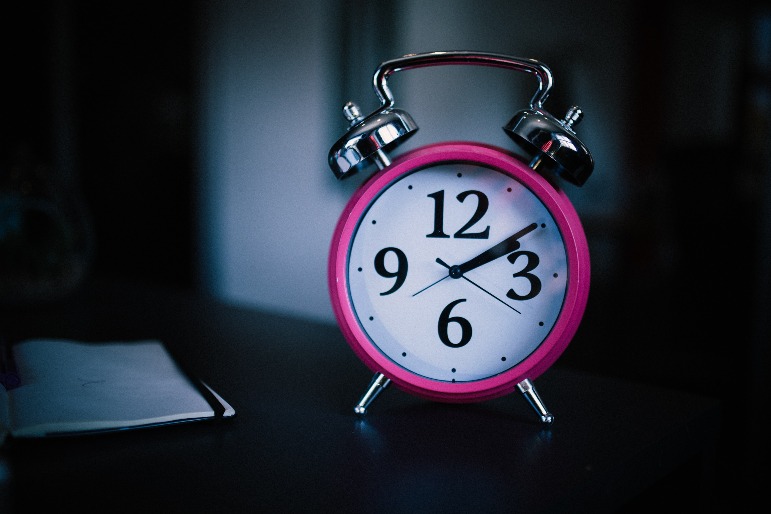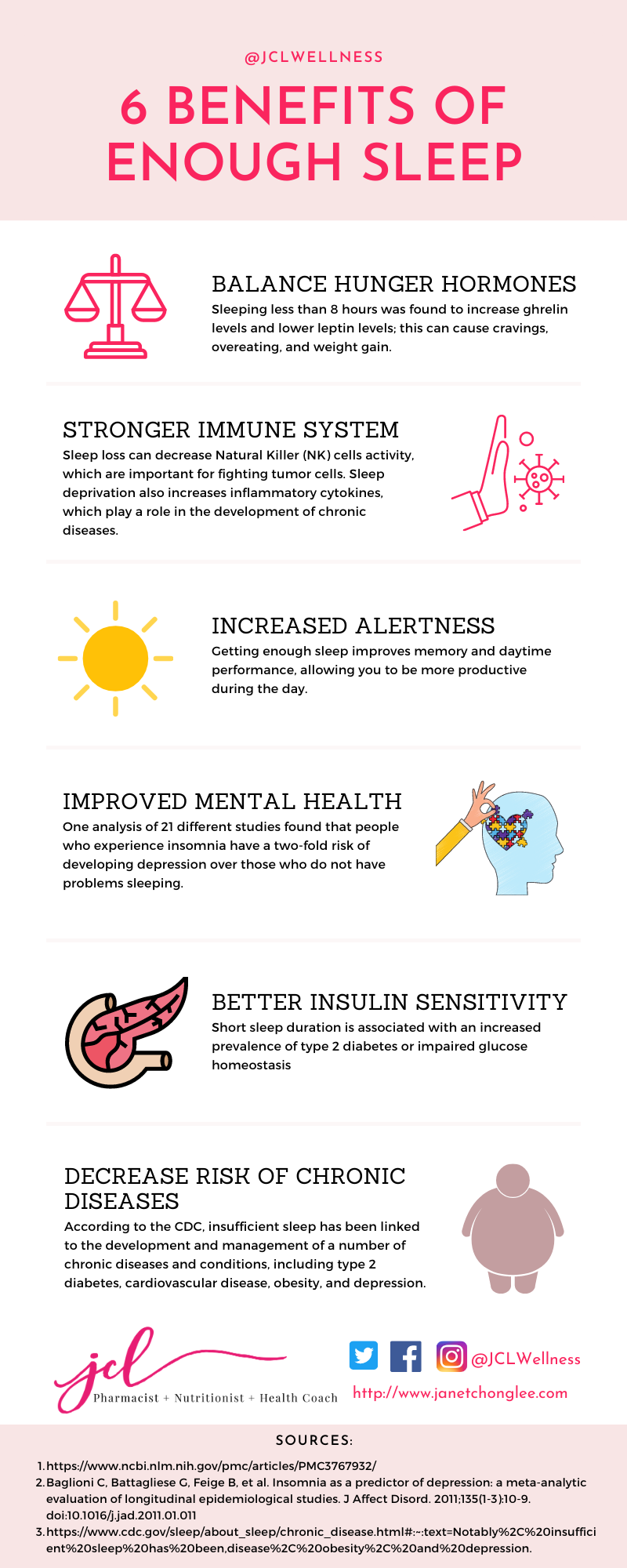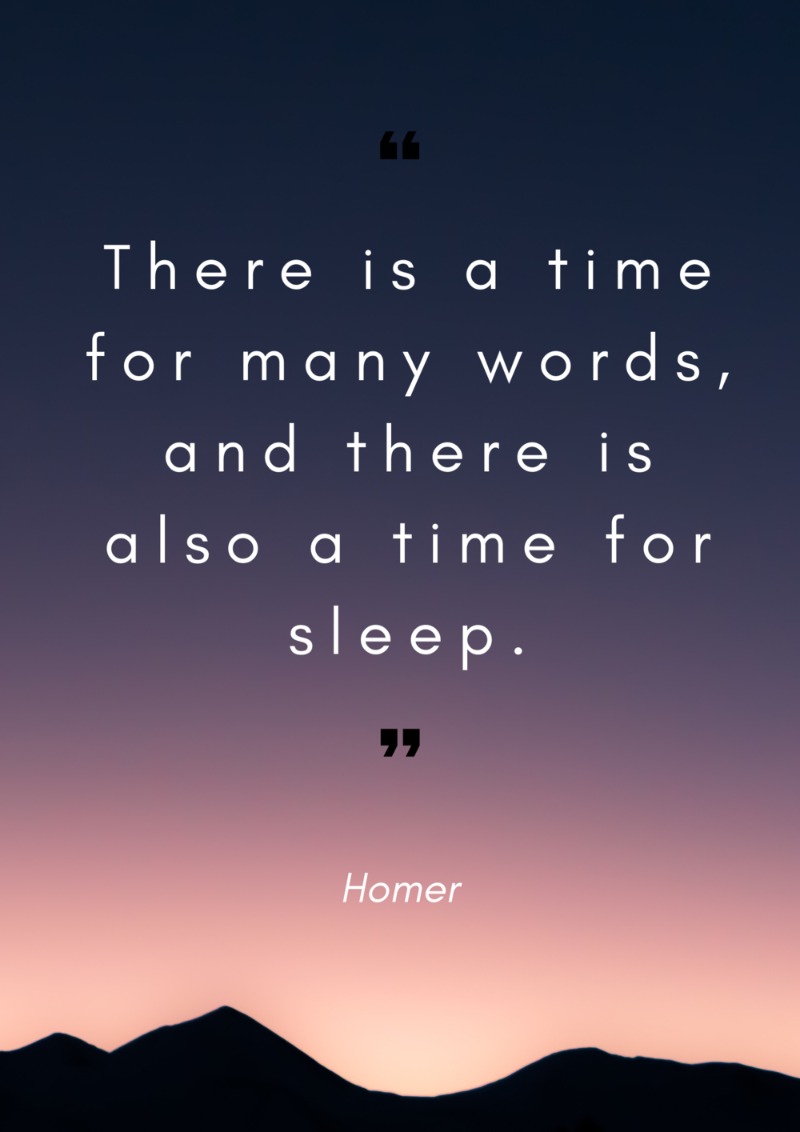Why you need sleep, and what happens when you don't get enough?
October 31st, 2020

While my favourite answer is "it all depends", most adults will require between 7-9 hours of sleep per day.
While we do not understand how and why humans have evolved to require sleep, studies have shown that adequate and good quality sleep is needed for:

Sleeping is a basic human function, just like breathing, eating, peeing, and pooping! If you don't get enough sleep, you end up being sleep deprived which may lead to sleep deficiency. Conversely, sleep deprivation is associated with:
Leptin and ghrelin are hunger hormones. Ghrelin (think ghrelin for grumbling) INCREASES appetite and makes you want to eat. Leptin DECREASES appetite. One study found that shorter sleep duration (i.e. less than 8 hours) was associated with increased body mass index (BMI), and that shorter sleep was associated with HIGHER ghrelin and LOWER leptin levels. These altered hormones levels can contribute to overeating, cravings, and weight gain.
In another study where adults were subjected to sleep restriction, there was decreased glucose metabolism and decreased insulin sensitivity; both of these are factors which are present in pre-diabetes and type 2 diabetes. There is a growing body of evidence suggesting that chronic sleep deprivation is a strong risk factor for weight gain, insulin resistance, and type 2 diabetes.
Do you have any medical conditions that may affect your sleep (e.g. congestive heart failure, obstructive sleep apnea)? Addressing and managing these conditions may help to improve sleep. Certain prescription medications may be stimulating or disrupt sleep. If you are taking any prescription medications or even over-the-counter medications, they may need to be assessed or reviewed. Sometimes it may just be as simple as changing the time you take your medications. Once your conditions and medications have been optimized, recommendations will include sleep hygiene practices including, but not limited to:
Sometimes sleep hygiene may not be enough, and other non-pharmacological suggestions such as sleep restriction, stimulus control, relaxation therapy, or cognitive therapy may be trialed. Cognitive Behavioural Therapy for insomnia (CBT-i) has shown to be very effective for the management of insomnia without the use of medications. Lastly, medications can be considered in conjunction with CBT-i, but its use should be limited to short-term only (less than 4 weeks).

There are non-prescription medications available for purchase that are advertised to help with sleep. Unfortunately, I do not recommend them because 1) they have horrible side effects such as daytime drowsiness and increased risk for falls, especially in older adults and 2) you may end up sleeping only slightly longer compared to not taking any medications.
Melatonin is a hormone that is naturally produced by the body and its levels are highest at night. For some individuals, taking melatonin may decrease the time it takes to fall asleep, increase total sleep time, and improve quality of sleep. There are various formulations available, but dosing and administration time need to be individualized.
Valerian is an herb and its root has been used for insomnia since antiquity. In one meta-analysis, patients who took valerian root had an 80% greater chance of reporting improved sleep, but firm recommendations cannot be made due to the wide variance in the studies which were analyzed. There are also purity issues to consider, as well as side effects which may occur. Valerian root may slow down the breakdown of other drugs, increasing their levels in the body and increasing the risk of side effects.
Tryptophan is an amino acid that is used to make serotonin. Serotonin is converted to melatonin when it is dark outside. The two must work together to maintain wakefulness during the day and ensuring a restful sleep at night. Tryptophan is commercially available as L-tryptophan, but evidence for its use in the management of insomnia is conflicting. Also, as it is a precursor to serotonin, it may cause dangerous levels of serotonin (i.e. serotonin syndrome) in people who are on certain antidepressants.
Yes! Eating foods that contain the nutrients involved in healthy and good sleep while avoiding foods and beverages (e.g. caffeinated beverages) that are stimulating may assist with sleep.
Foods high in tryptophan include:
Magnesium helps to activate the parasympathetic nervous system (the rest and digest part of our nervous system), and regulates the hormone melatonin.
Foods containing magnesium include:
Foods containing melatonin:
There are many other nutrients that are needed for optimal health and a good night's sleep. Focus on eating a variety of whole foods that are minimally processed to boost intake of nutrients your body needs.
Sleep is complex, and everyone's approach to improving sleep will be individualized. Before starting any supplement or medication, please speak with your primary care prescriber. If you want to learn more about sleep and its benefits, or how to improve your own sleep, feel free to send me a note! I'd love to work with you to transform your life and your health! Until next time - sleep well!
- Janet
Copyright © 2021 JCL Wellness.
All rights
reserved.